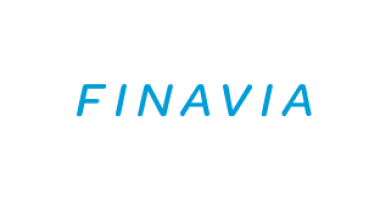Infinited Fiber Company accelerates scaling plans amid turbulence
and textile technology company Infinited Fiber Company’s work to build the world’s first commercial-scale Infinna™ textile fiber factory in Kemi, Finland, has progressed largely according to plan since the announcement of the factory site in June 2022. The company is increasing its focus on scaling Infinna™ production volume further as quickly as possible. This is in response to the continued and growing customer demand for the company’s high-quality regenerated textile fiber Infinna™. The market impacts of the ongoing war in Ukraine – including the increased uncertainty on the global utility, commodity and financial markets – have highlighted the need to proceed rapidly with technology scaling on multiple fronts.
“We are not immune to the global market context in which we operate. The supply chain issues stemming from the Covid-19 pandemic are still wreaking havoc, and the ongoing war in Ukraine has dealt a heavy blow to the global utility, commodity, and financial markets – and to us. We are satisfied with the progress at the site of our planned commercial-scale factory and the opening of the factory remains our key priority. The current, unstable market environment has highlighted the need for us to also accelerate efforts to simultaneously pursue other avenues for scaling production, with the ultimate aim of serving our customers in the best possible way in the long run,” said Infinited Fiber Company CEO and cofounder Petri Alava.
Infinited Fiber Company said in June that it planned to build a factory to produce Infinna™, a textile fiber that can be created 100% from cotton-rich textile waste, at the site of a discontinued paper mill in Kemi, Finland. The factory is expected to create around 270 jobs in the area and to have an annual production capacity of 30,000 metric tons, equivalent to the fiber needed for about 100 million T-shirts. The future factory’s customer-base includes several of the world’s leading apparel companies, with most of the future production capacity already sold out for several years.
Since June, Infinited Fiber Company has advanced the site-specific basic engineering, recruitment planning, vendor selection, and permit processes according to plan. The limited component availability caused by the continuing impacts of the Covid-19 pandemic and the war in Ukraine have, however, prolonged significantly the delivery times for some of the key equipment and machinery needed for the factory. As a result of these developments, Infinited Fiber Company has re-evaluated its overall factory project timeline. The first commercial fiber deliveries from Kemi are now expected to begin in January 2026. The scope of the project remains unchanged and construction work at the site is expected begin during 2023 as previously communicated.
In addition, the European energy crisis sparked by the war in Ukraine has caused the electricity prices in Finland to roughly triple, and the prices of some of the key chemicals needed in the fiber regeneration process have risen by some 200-300% since the start of the war.
“We of course don’t have a crystal ball. But according to our advisors and other experts, utility and commodity prices are forecast to normalize before 2026, when we now expect the first commercial fiber deliveries from Kemi to be shipped. In addition to the likely normalization of the market, the extended timeline enables us to undertake the necessary measures to develop the profitability of the future factory. The growing demand for Infinna™, despite the general turbulence, is an encouraging and clear indication of the fashion industry’s commitment to circularity,” said Petri Alava.
Infinited Fiber Company









